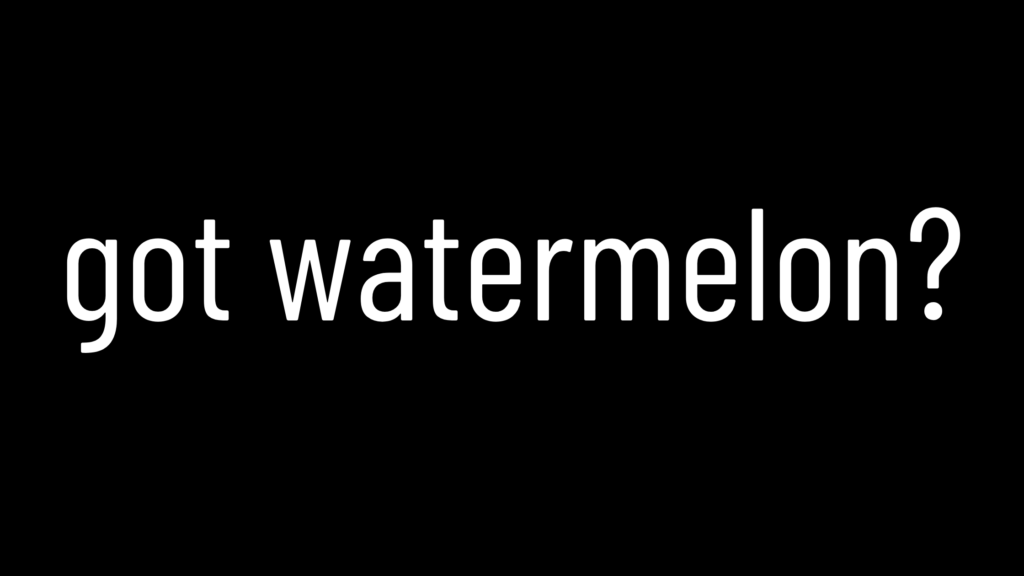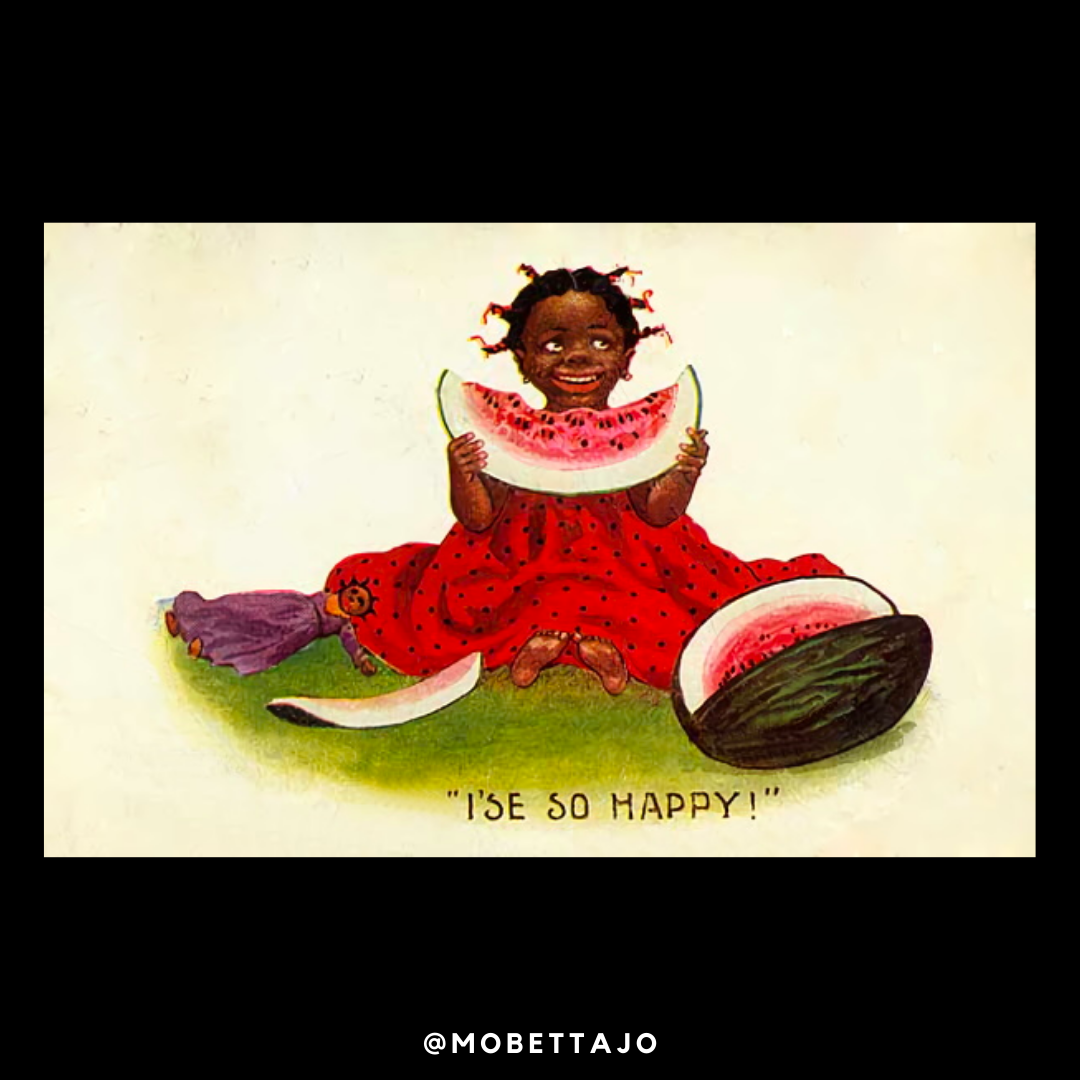

Black People Love Watermelon
What’s the first thing that comes to mind when you hear the word watermelon? Delicious fruit? For me, the answer depends on the company I keep. You see, deep down, I don’t like to eat watermelon in front of white people. Sometimes, I do it anyway to address and overcome my discomfort. I know we’re just talking about a piece of fruit, but the only time I feel “safe” eating watermelon in public is around other black people. I’m not the only one. I have a friend who is disgusted every time he sees a black person eating watermelon in “mixed company.”I have friends who tell me they would never wear my T-shirt that has a bunch of mini watermelons on it because they don’t want to be a walking stereotype.
We all know the stereotype, right? Black people love watermelon.
For most of my life, I wondered why black people were singled out as having affection for a piece of fruit that is universally loved by all cultures and races. And then I discovered the answer was, as Kenya Barris would say, “because of slavery.” Post-emancipation, many black people sold watermelons for a living. When plantation owners lost their free labor, many became resentful having to witness the freedom that came to black people by way of the watermelon. Out of indignant spite, spurious images of black people and watermelons became commonplace across the South. And then blackface. And then Birth of a Nation. Generations later, this stereotype has moved deep into our social subconscious without its historical context.
On paper, it seems crazy that we’re talking about a piece of fruit. But something as innocent as a watermelon is a prime example of an enduring truth of life: if you repeat a lie long enough you can get some people to believe it; if you repeat it long enough, people will begin to be affected by it. And if we’re not conscious enough to acknowledge the origin of a lie, we’ll never achieve true freedom from it. As a Black woman recently wrote in a Vox article, “I guess I’m not as free as I thought.”
I’d love to hear from any and everyone who has a personal story. Tell me, what is your watermelon story?
For further reading on this topic, please check out How Watermelons Became a Racist Trope


Hey Jocelyn: Thanks for sharing that piece of information (on watermelons). I did not know any of the backstory and my first thought, when I saw the picture of the little girl, was “What?” Because, of course, I have heard of the stereotype. And, honestly, I always wondered where it came from . Now I know. What a bummer that you feel the need to choose where, when and in what company it feels OK to eat watermelon.
I could not connect with the Vox article via the embedded link. Would it be possible to send a direct link? Or title of the article?
From an old White man – Ron Gray (by the way – you were my educator on GRM last year – remember me getting feisty about agreeing not to drink at all over the weekend?) By the way, I didn’t drink that weekend. But, I think you did a great job and I regularly use GRM in my private MFT practice. So much so, that I’ve changed my practice scope to be solely on grief, loss and associated trauma.
And – how is that beautiful baby of yours (I think of as the miracle baby)?
Hi Ron
The link should work now.
I love to see how specialists are doing on the other side of their feistiness lol. I’m glad you’ve been able to incorporate it into your work in such a significant way. Thanks for reading and commenting!
I’m pretty sure you were in the training where I didn’t know that I was actually pregnant. Miracles for days! And yes, we actually call Jonathan our miracle baby! He is quite addictive.
I am a white female who continues to learn about my privilege and complicit bias. As I read this, my heart once again broke as I learned about something else I never considered. Yes I have heard the watermelon comments before, but I never gave it any thought other than recognizing the bigotry. I would speak up about the bigotry, yet I never understood the effect until now. I never understood the pressure involved with eating watermelon in mixed race gatherings. I never considered that watermelon was just a symbol of so much more. I will never forget this and the depth behind this message. Once again, I know so little and I have so much more to learn about how simple things in my view actually have so much more meaning. So I continue to listen and learn.
Thank you so much for showing up and listening & learning!